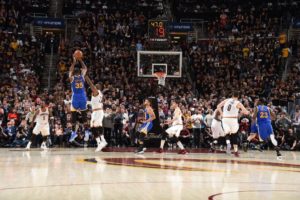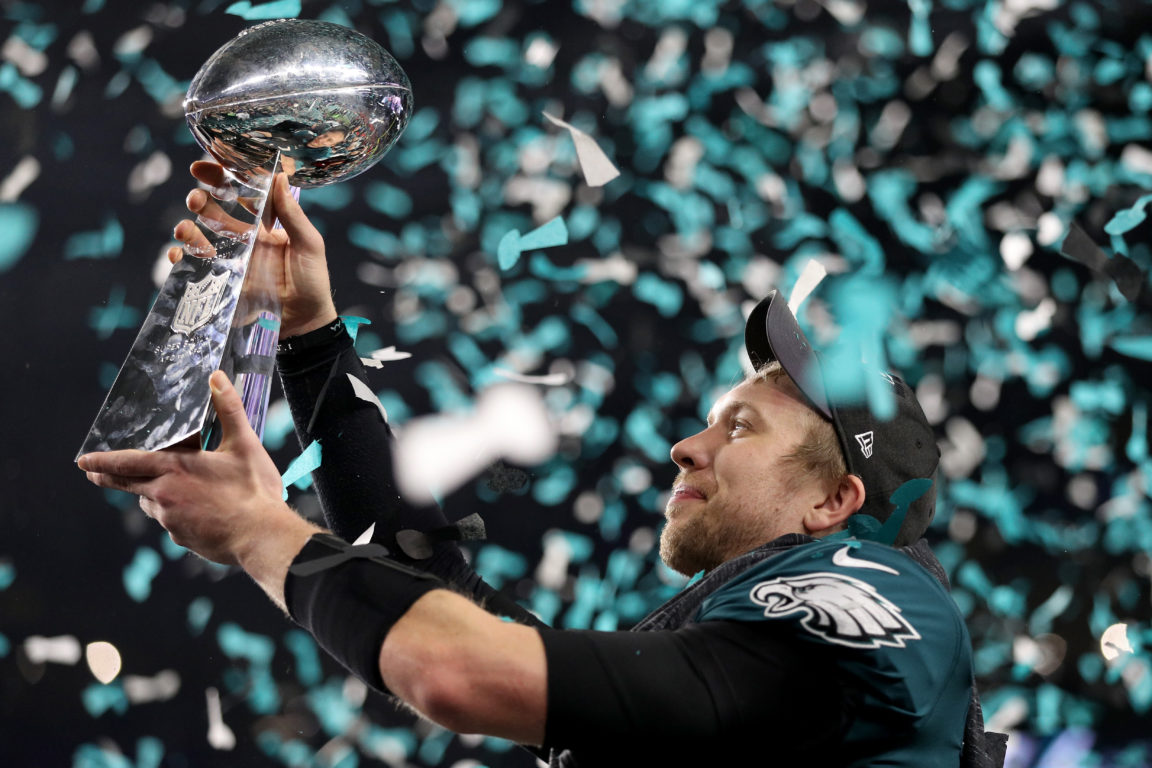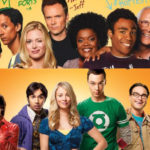Many sports fans enjoy the games because of one thing: you never know what’s going to happen. While this theory has been tested a bit in the NBA with the boring dominance of both the Golden State Warriors in the Western Conference, and LeBron James in the Eastern Conference (though his reign of terror in the East has now ended with his move to the Los Angeles Lakers) over the past half-decade or so, sports still give fans crazy, unlikely, and sometimes unbelievable occurrences that keep people flocking back in numbers.

I ask, then, what would happen if sports were scripted; if there was a team of writers coming up with storylines for sports’ best moments?

It’s an interesting thought. Would non-sports fans give the scripted sports a chance? Would current sports fans still watch? Would the games be more or less interesting?
Now, of course, the logistics behind actually scripting live sporting events are murky at best, impossible to attain at worst. Scripting a live baseball game, for example, would be darn near impossible, as it’s extremely difficult to hit a baseball, and it’s very possible that one would get out even with a hard-hit ball. This article works under the assumption, however, that Hollywood figured out how to script live sports, despite the potential roadblocks.
Would Scripted Sports Gain New Fans and Appease Current Ones?
As I said before, the allure of sports to many is its unpredictability and the ease with which fans can associate themselves with a team. I, for example, am a diehard Philadelphia Phillies, Sixers, and Eagles fan. If sports were scripted, I think it would be more difficult for me to associate myself with a team in that passionate of a fashion; it would instead feel like either being Team Edward or Team Jacob in Twilight. Furthermore, there already is a scripted sport: WWE. I know that I refer to WWE as a “fake” sport, as do many of my sports-loving friends. While the athletes must be able to take some pain and be at least somewhat in shape, the fact that it is scripted makes it seem less than a sport. In other words, fake. In these ways, I think scripted sports would be difficult for current fans to digest.
But would it gain new, non-traditional sports fans? This is murky, but my guess would be yes, but on a small scale. Friday Night Lights, which is a critically-acclaimed television show about a football-crazed town that centers mostly on their high school football team, for example, struggled with ratings for the entirety of its five-season run. Other shows dependent on sports, such as Blue Mountain State, seem to struggle in the ratings, as well. Don’t forget, however, that these are scripted series that are not completely about their respective sports; much of the show is focused on developing characters. In theory, scripted sports would be almost entirely about, well, sports. With this focus in mind, the ratings to WWE’s Raw and Monday Night Raw, which are both almost entirely about the sport and much less about developing the characters, aren’t bad at all, indicating that there is a market for scripted sports. But does this mean that new, currently-non-sports-fans will flock to see sports if they become scripted? I think a few would check it out just for kicks, but would then leave once they realize that the “show” is actually just scripted versions of the sports that they didn’t like to watch in the first place.

Would it Make Sports More or Less Interesting?
With that said, would much actually change for the negative? Writers would certainly want to keep things fresh and interesting. This means that the “superteam” issue that the NBA currently has with multiple stars flocking to a select few teams would likely never have happened, unless, of course, writers wanted to create a Thanos-like villainous team that would eventually be conquered (well, I guess we can only technically assume Thanos will be beaten – but, judging by basically any superhero movie ever, he will). This would give fans of small-market teams that are unable to create said superteams a reason to hope that things may turn around and they may have a chance at winning it all; the writers would want to keep fans of every team, small-market or not, tuned in and engaged. This logic also applies to the MLB, where there is no salary cap, meaning that teams such as the Los Angeles Dodgers can spend tens – and sometimes hundreds – of millions of dollars more than small-market teams such as the Kansas City Royals and Tampa Bay Rays. If things were scripted, however, more prospects of the small-market teams would likely stay with their teams for the duration of their careers, and stars wouldn’t always leave for greener pastures and/or bigger market teams – writers would want to keep these homegrown stars as likable as possible. Furthermore, writers would likely give these small-market teams more Cinderella-story possibilities, meaning that fans of all teams would have more reason to believe that they could win it all.
There is a clear negative to all of this, though – big-market teams, or teams that are easier to hate -such as the Duke Blue Devils, Alabama Crimson Tide, New England Patriots, Dallas Cowboys, and the aforementioned Warriors – would likely be given little-to-no wholesome storylines. Rather, these “villains” would likely be relegated to villainous storylines, and would rarely win it all. While this initially seems like it would be awesome, it would also make storylines much more predictable; the villain beats the mediocre teams, a few fan-favorites get knocked out, but then the “hero” team of the season bests the villain in the championship (or near it). While the villain would win every once in a while to keep things at least a little bit fresh, it is very likely that an iteration of this scenario would play out more often than not. This is what would make things seem “fake,” or like the show jumped the shark. While parity in sports is wanted by almost every sports fan ever, this parity being achieved via writers simply wanting to keep all fans engaged, and despite big-market teams having clearly better teams, would likely be a difficult pill to swallow.

Wrap-Up
In theory, scripted sports could work. However, chances are that the writers and people involved would eventually start repeating the same story themes over and over again (the “villain” team loses to the spunky, likable, underdog “hero” team). With a precedent already said with the WWE, the pieces are in place for scripted sports to make it, and the idea would probably bring in a few more fans. However, I think it would lead to less passionate fans, more predictable outcomes, and could lead to the demolition of sports as an American value. Still, the idea is very, very interesting.




